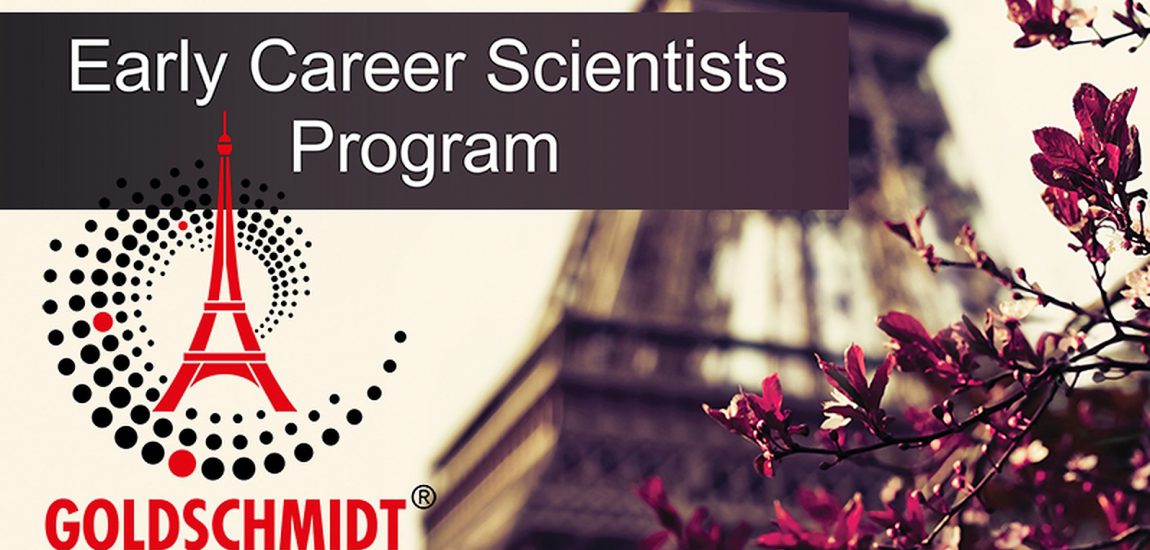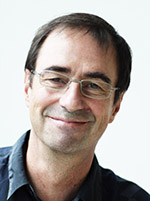
Prof Bernard Marty (President, EAG) – all well-known researchers were early-career scientists at some stage!

Prof Bernard Marty is the new President of the European Association of Geochemistry. Here we learn of his thoughts on self-empowerment for Early Career Scientists, the support offered from the EAG, and his journey from Mr Marty to President Marty, via Japan.
This interview focuses on the interviewee, and therefore my own commentary is reduced to an absolute minimum, for now.
Sami: Congratulations on being nominated as the President of the European Association of Geochemistry. How does it feel?
Bernard: It’s very exciting in fact, and it’s more about thinking what is great to do for the future. We have a fantastic team, chair, and organising committee. I want to make people happy in their science. And the EAG is pan-European, I believe that Europe is our future.
Sami: How would you describe yourself, professionally?
Bernard: I am basically a geochemist, but specifically I am an isotope geochemist.
Sami: You also work on meteorites and comets, so would you define yourself as more of a Cosmochemist or Geochemist?
Bernard: I don’t like to put things into these boxes, I like to say geochemist and this encompasses everything.
Sami: What is your current position?
Bernard: I am a Professor at the Ecole Nationale Superieure de Geologie, and researcher at CRPG Nancy.
Sami: Who are you, personally? What are your non-scientific hobbies?
Bernard: I am really into my music and my band (link). I think music is as creative as research, and an excellent way to collaborate.
Sami: Where did you work as an Early Career Scientists?
Bernard: I did my PhD in physics in Toulouse, because I wanted to work on volcanoes, and back then (in France) people pushed numerically-minded people into physics. My work focused on the physics of K-Ar dating. After this I moved to Japan and worked under the mentorship of Prof Minoru Ozima at the University of Tokyo. At this time, noble gas geochemistry was developing in US and Japan, and I thought it was a lot of fun to address lots of questions about mantle gases, and questions within Cosmochemistry. My time with Prof Ozima was where I started to think about what I could contribute to science. I was not born into a big lab with big toys. However, what helped me was the lessons I learned as a postdoc. I knew I needed to do something new, and had to find something useful and important to do. Movies made me want to work on volcanoes, but what could I do with volcanoes? I noticed that people normalised igneous mineral REE abundances to chondrites, so I decided to do the same for volatile elements using noble gases, such as the carbon/He-3 ratio. I then identified the need for references to express and explain the meaning of volcanic gas datasets. Then we needed to understand from where terrestrial volatiles come from, and I went to cosmochemistry, and so on.
Sami: What career challenges have you faced? What do you identify as a major challenge to early-career scientists?
Bernard: To get a position! And the difficulty to identify what and how to find something important to do, how to make an advance in science. This is the basic purpose of science. I think it is important for scientists to ask themselves what is not known, and what should be explored to advance our collective knowledge. This can be a difficult and uncomfortable exercise, but sometimes one finds a kind of breadcrumb trail that allows her/him to advance science. Maybe the hypothesis would prove to be wrong, but then another hypothesis may pop up, and so chance plays a role. I.e. you follow your trail, but suddenly a door opens on an adjacent path, and you follow it to a find a discovery. There is no unique way to be successful in science, everyone may have her/his own tricks.
Sami: Do you mean that early-career scientists should realise that they can be the big person, themselves?
Bernard: Big person? Well, I guess I need to do some exercise and diet after this conference… More seriously, if you want to be a person of power, go to economy, business, politics, not research. Science is, or should be, about having fun and discovering new things, not exerting power on others. And, yes, all well-known researchers were early-career scientists at some stage!
Sami: Do you think it is important for mentors to encourage early-career scientists to trust their own judgement?
Bernard: Absolutely, it is difficult, but important, for early-career scientists to think for themselves and they need space and support to do so.
Sami: Sadly, we must also consider that not all PhD advisors or postdoc mentors will focus on the professional development of their students/postdocs. Instead, they will view them as data monkeys – this is a sad fact. Now, as President of the EAG, what advice would you have for early-career scientists who find themselves in this scenario?
Bernard: I think mentoring a two-way process. Students learn how to convert a passion into a job. The mentor should encourage the student/post-docs to think about new avenues of research, but the mentor must also delegate some research because they do not have the time, themselves. This combination can result in nice discoveries, and important papers. The point is to have an open, two-way dialogue so that these discoveries are a collaborative achievement, and a shared source of excitement. This becomes problematic if the exchanges do not take place, and it is wrong for the mentor to claim all the credit for the discoveries of early-career researchers (PhD & Postdoc). Sometimes this happens, unfortunately. The EAG can and does play a role, like utilising our website, and using conferences as a platform. For example, this Goldschmidt conference in Paris (2017), we had several sessions about education and gender issues, and we consider going further. Sami, you are welcome to take the lead on this at EAG! And I encourage junior scientists to contact me if they are in a situation of crisis.
Sami: Has the EAG or the Geochemical Society played a positive role in your professional development? Or person? If so, how?
Bernard: Prof Minoru Ozima was a great help because I came back from Japan having learning something new, thanks also to my friend Yuji Sano. In addition, Marc Javoy, Keith O’Nions, Albert Jambon, Francis Albarède among others were also inspiring to me. I became CNRS researcher in Paris, and when a faculty position opened in Nancy (France), I applied for it and I got it. There I met people like Marc Chaussidon, Etienne Deloule, Christian France-Lanord, Guy Libourel. We were a group of young enthusiastic researchers at CRPG Nancy developing new themes, a very exciting period.
Sami: If you had a time machine and could witness any event, or see any period in geological time, what would you choose to see?
Bernard: The Archean, I want to see the Archean atmosphere, and mantle.
Sami: The Hadean?
Bernard: Certainly. We need samples! But maybe they’re on the Moon?
Sami: Indeed. So maybe we can see then when we look at the Moon?
Bernard: Yeah, yup. I also want a sample of a comet in my lab.
Sami: So, you only have a short list of desires?
Bernard: Ha!
